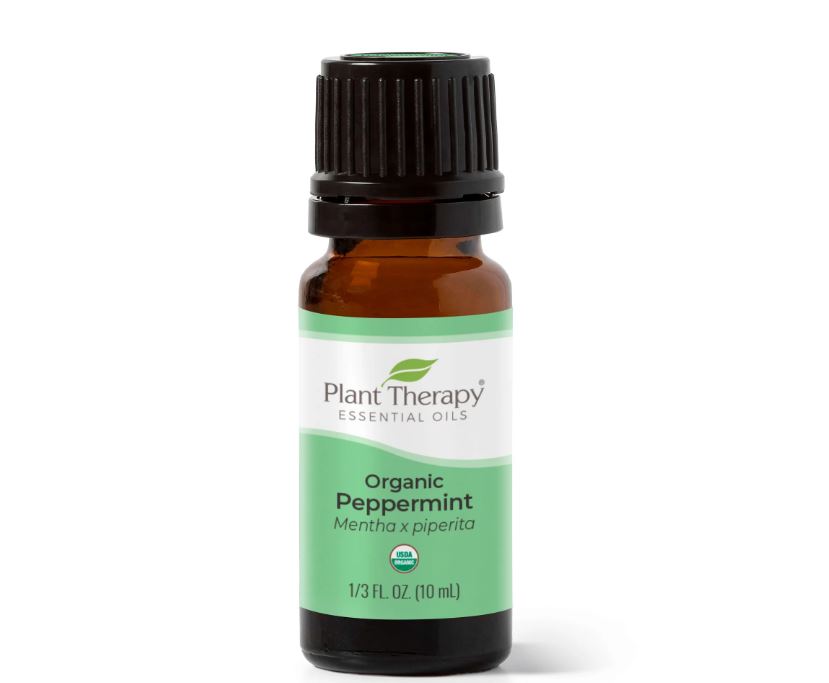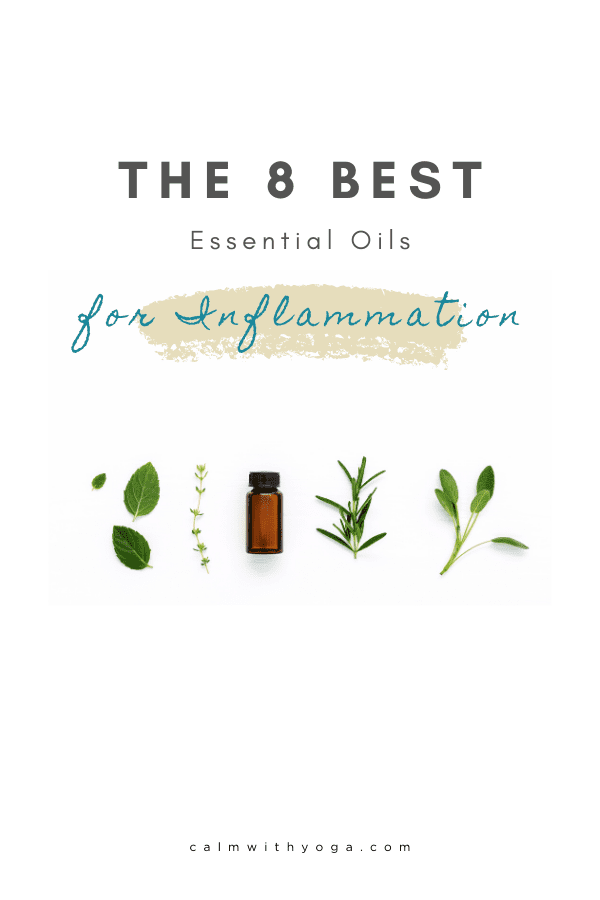Overview
Inflammation is becoming a buzz word these days so let’s make sure we understand it.
The body’s inflammatory response is a sign that the immune system is working and active.
Think of your immune system as your very own built-in defense mechanism whose sole job and focus are to protect you from outside threats and invaders such as viruses, bacteria, and fungi.
So under “normal” circumstances, the presence of inflammation means that your immune system is doing its job.
We can experience acute (short term) inflammation when we get stung by a bee or cut our finger or experience an infection.
The body uses the inflammatory response to heal the affected area and the issue usually resolves on its own.
Chronic inflammation is a different story.
Rather than resolving on its own inflammation persists, becomes ongoing, and can even spread to other parts of the body.
Things that can trigger chronic inflammation include undetected infections and viruses and autoimmune conditions like rheumatoid arthritis and ulcerative colitis.
Signs and symptoms of inflammation can include:
- Redness
- Swelling
- Pain (muscle pain, back pain, joint pain, etc.)
- Heat/Warmth
- Skin irritations
- Loss of function
- Mucus or pus
- Bleeding
As we get older inflammation can increase and cause us to age even faster. (This is what doctors refer to as ‘inflammaging’.)
Inflammation can happen in various parts of the body and includes conditions usually ending in “-itis”:
- Conjunctivitis (aka pink eye)
- Sinusitis/ rhinitis (inflammation of the nasal and sinus cavities)
- Gingivitis (inflammation of the gums)
- Thyroiditis (inflammation of the thyroid gland)
- Colitis (inflammation of the colon)
- Proctitis (inflammation of the rectum)
The good news is there are various ways we can lessen the presence of inflammation (and chronic pain) in the body.
Simple lifestyle tweaks and the adoption of new habits can help. (More on this later.)
Another way to manage inflammation is to reach for natural remedies such as essential oils…
How Essential Oils Work To Manage Inflammation
Essential oils (EOs) are highly concentrated plant compounds that are extracted from various parts of plants, trees, flowers, and fruit.
EOs possess high levels of active compounds that are known to help support the body’s own healing mechanisms while also offering many medicinal properties and health benefits .
Research shows EOs can be effective at:
- Boosting immunity
- Decreasing stress and anxiety
- Improving sleep
- Relieving pain and discomfort
- Soothing eczema and other skin conditions
- Treating colds, coughs, sinus infections, and sore throats
- Addressing allergy symptoms
- Soothing headaches and migraines
The application of EOs for therapeutic purposes is called aromatherapy.
When looking to use EOs for relieving the pain and discomfort associated with inflammation you want to look for oils that possess the following properties:
- Anti-inflammatory properties
- Analgesic properties (for pain relief)
- Antibacterial (to help keep infections at bay)
- Antispasmodic (helps prevent painful muscle spasms)
- Antioxidant (helps fight inflammation by preventing oxidation)
The 8 Best Anti-Inflammatory Essential Oils
Eucalyptus oil (Eucalyptus globulus)




- Analgesic
- Anti-inflammatory
- Antibacterial
- Antispasmodic
Eucalyptus essential oil is rich in 1.8 cineole, an active compound known to help relieve pain and fight inflammation. (4)
Peppermint oil (Mentha piperita)




- Analgesic
- Anti-inflammatory
- Antibacterial
- Antispasmodic
- Anesthetic
Menthol, the active ingredient in peppermint essential oil, is a well-known pain reliever and anesthetic agent.
Peppermint oil is used to aid with inflammation and pain
Contraindications: children under 6 years old, high blood pressure, pregnant and breast-feeding women
Tea tree oil (Melaleuca alternifolia)




- Analgesic
- Anti-inflammatory
- Antibacterial
- Antiseptic
This powerful oil has been used medicinally by Australia’s Aboriginal people for thousands of years.
Its antiseptic properties make it effective at treating wounds and accelerating healing, which also helps lower inflammation.
Ginger oil (Zingiber officinale)



- Analgesic
- Anti-inflammatory
- Antibacterial
- Antioxidant
- Antispasmodic
Ginger essential oil is well-known for its anti-inflammatory effects and if often used to aid arthritic pain.
A 2016 animal study found lowered rheumatoid arthritis-related inflammation rates in female rats after exposure to ginger essential oil. (1)
Frankincense oil (Boswellia carteri)


- Analgesic
- Anti-inflammatory
- Antibacterial
- Antioxidant
- Antispasmodic
Frankincense is regarded as a potent anti-inflammatory.,
In fact, according to the Arthritis Foundation Frankincense can help manage inflammation pain symptoms. (2)
Lavender oil (Lavandula angustifolia)


- Analgesic
- Anti-inflammatory
- Antibacterial
- Antispasmodic
Lavender essential oil is really effective at accelerating wound healing while also acting as a powerful antiseptic to prevent infections.
It’s usually gentle enough to be used for sensitive skin types.
A 2016 study on osteoarthritis knee patients found that massaging lavender oil and almond oil onto the inflamed joint for three weeks resulted in reduced inflammation and pain after the first week. (5)
Turmeric oil (Curcuma longa)


- Analgesic
- Anti-inflammatory
- Antibacterial
- Antioxidant
According to a growing amount of research, turmeric essential oil boasts potent anti-inflammatory effects thanks to its main active ingredient called curcumin.
A 2016 systematic review of various randomized clinical trials published in the Journal of Medicinal Food found that overall 1,000mg/day of curcumin extract appears to help alleviate arthritis symptoms though more research is needed. (6)
Roman Chamomile oil (Chamaemelum nobile)

- Analgesic
- Anti-inflammatory
- Anti-bacterial
- Antispasmodic
Chamomile is pain-relieving and soothes inflammation.
A review published on Molecular Medicine Reports found chamomile to be a medicinal herb capable of treating rheumatic pain, ulcers, inflammatory pain, and burns. (3)
Chamomile is also known to help calm the nervous system and relieve tension, which is also helpful when trying to lower inflammatory markers.
Other EOs that may help manage inflammation:
Safety Concerns
When used mindfully and with care EOs usually offer little to no side effects compared to inflammation medication such as NSAIDs and steroids.
It’s important to note, though, that EOs aren’t cure-alls and they tend to work best when accompanied by additional anti-inflammatory supporting lifestyle practices. (More on that below.)
You can apply EOs topically to the affected area(s) and always make sure to dilute the EOs with a carrier oil.
EOs may cause some skin irritation or reaction, especially if you have sensitive skin or are applying them neatly.
It’s recommended to perform a patch test first before applying to an open wound or inflamed area.
You can also diffuse oils and benefit from their medicinal properties via inhalation.
This is especially good if you’re experiencing inflammation in the lungs or any other part of your respiratory tract.
How To Use Essential Oils for Inflammation
As mentioned always dilute EOs with a carrier oil like jojoba oil, coconut oil, olive oil, or sweet almond oil when applying them directly to your skin.
As a general rule of thumb stick to 1-2 drops of EO per teaspoon of carrier oil.
Never apply EOs in mucous membrane areas like your eyes, nose, or genitals as this can cause irritation.
You can mix and blend different EOs to enhance their therapeutic effects.
If you’re using a diffuser stick with no more than 15 drops of EO per 200ml of water.
7 Lifestyle Practices That Can Help Lower Inflammation
As mentioned you can help support your body in reducing inflammation by making just a few tweaks to your lifestyle patterns, by removing certain harmful habits such as smoking and excessive alcohol drinking, and by incorporating new empowering habits like the following 7:
Supplementation
Always consult with your healthcare provider before taking any supplements.
The following supplements are not a complete list but are generally considered helpful for inflammation:
- Curcumin (the active ingredient in turmeric)
- Fish oil
- Resveratrol
- Quercetin
- Spirulina
- Chlorella
- Flax seeds of flax oil
- Coconut oil
- MCT oil
- Vitamin D3
- Cat’s Claw
- Bromelain
Diet
What you eat greatly impacts inflammation levels and embracing an anti-inflammatory diet 80% of the time can help you notice a big difference.
Opt out of consuming inflammatory foods such as dairy, gluten, sugar, canola oil, and other vegetable oils, processed foods, and fried foods.
These foods create inflammation in the gut and the rest of the body.
Aim to eat like a yogi and notice how your energy shifts and how your digestive health improves.
Hydration
Did you know that a chronic state of even mild dehydration can increase inflammation in the body?
It’s important to keep hydrated by consuming at least 1.5-2L of water daily and even more if you workout intensively and sweat a lot.
Practicing proper daily hydration is actually a yogic practice that can help slow down aging and keep your body’s healing mechanisms fully activated.
Breathing (Pranayama)
Believe it or not, your breath can be an anti-inflammatory tool!
Certain pranayama (yoga breathing) exercises have been shown to reduce inflammation levels according to some studies.
Just a few minutes a day can create big results if you stick with it.
Can you commit to 5 minutes a day of pranayama breathing?
Meditation
Taking up a daily meditation practice, even if it’s just a few minutes a day to start has been shown to lower cortisol levels (aka the stress hormone), lower inflammation levels, and even strengthen your brain.
You can start with this short but effective guided practice.
Quality Sleep
Poor sleep habits can cause an increase in stress hormones, excess weight gain, and higher inflammation markers.
Getting quality sleep each night is difficult for many of us so here’s a guided yogic sleep meditation and a few useful tips to help you.
Yoga poses (Asana)
Mindful movement of the body and the regular practice of specific yoga poses can help you boost immunity.
When immunity is boosted inflammation usually decreases.
Make it a point to move your body mindfully for at least 20-30 minutes a day.
REFERENCES
:
(1) https://www.ncbi.nlm.nih.gov/pmc/articles/PMC5115784/
(2) https://www.arthritis.org/health-wellness/treatment/complementary-therapies/supplements-and-vitamins/supplement-and-herb-guide-for-arthritis-symptoms
(3) https://www.ncbi.nlm.nih.gov/pmc/articles/PMC2995283/
(4) https://pubmed.ncbi.nlm.nih.gov/14611892/
(5) https://www.researchgate.net/profile/Leyla_Ozdemir/publication/301344191_The_Effects_of_Aromatherapy_Massage_and_Reflexology_on_Pain_and_Fatigue_in_Patients_with_Rheumatoid_Arthritis_A_Randomized_Controlled_Trial/links/59df0847458515376b386139/The-Effects-of-Aromatherapy-Massage-and-Reflexology-on-Pain-and-Fatigue-in-Patients-with-Rheumatoid-Arthritis-A-Randomized-Controlled-Trial.pdf
(6) https://www.liebertpub.com/doi/full/10.1089/jmf.2016.3705













